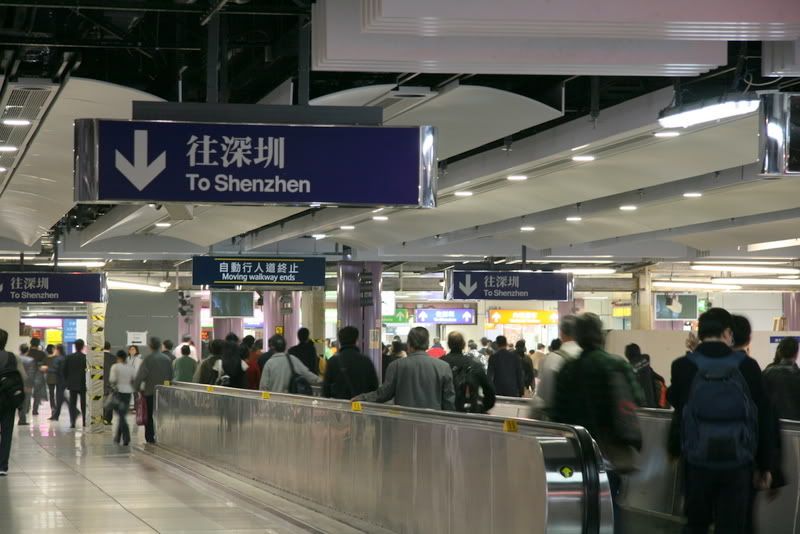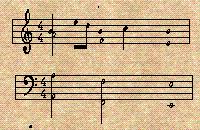| Pages in topic: < [1 2 3 4] > | How to distinguish good mainland Chinese translators from those less satisfactory ones? Thread poster: Angus Woo
|
|---|
wherestip 
United States
Local time: 19:52
Chinese to English
+ ...
| What to emphasize: the commonality or difference? | Dec 26, 2007 |
Wenjer,
I would think there are plenty regional variations and colloquialisms in the English-speaking world also.
http://www.peevish.co.uk/slang/
http://www.word2word.com/slangad.html
I don't think that that makes any regional variation superior than the oth... See more Wenjer,
I would think there are plenty regional variations and colloquialisms in the English-speaking world also.
http://www.peevish.co.uk/slang/
http://www.word2word.com/slangad.html
I don't think that that makes any regional variation superior than the other. However, the language habits common among a wider population tend to become more accepted over time. Therefore I would definitely advise against having the tail wagging the dog. 
[Edited at 2007-12-26 20:25] ▲ Collapse
| | | | Wenjer Leuschel (X) 
Taiwan
Local time: 08:52
English to Chinese
+ ...
| Believe me, I agree with you. | Dec 26, 2007 |
wherestip wrote: Wenjer, I would think there are plenty regional variations and colloquialisms in the English-speaking world also. http://www.peevish.co.uk/slang/ http://www.word2word.com/slangad.html I don't think that that makes any regional variation superior than the other. However, the language habits common among a wider population usually becomes more accepted over time. Therefore I would definitely advise against having the tail wagging the dog. 
Steve,
However, we are dealing with people who have their regional insistances. That is sometimes a problem to be bridged. That's why people need us translators.
| | | | lbone 
China
Local time: 08:52
Member (2006)
English to Chinese
+ ...
大陆是集权社会,文字是在统一的教育体制推动下发展出来的。从事商业翻译的译员面对的文字大多来自政治、经济、科技和商业(文化、旅游什么的也可以认为是商业,带有一定地域性,但受众也是全国性的),这些来源的正式文字在整个大陆环境中基本是一致的。各地的方言当然差别很大,但那不属于一般笔译译员需要关心的问题。在现在整个大陆内,各行业出现文字的地方,写作者很可能自全国各地,读者也是如此,全国人员流动频繁,再加上互联网的发达,大陆各地正式文字的表述基本是一致的。笔译译员需要关心是能上台面的正式表达,这种层面上不同地理位置带来的影响不大。
如果文哲在不同地点遇到不同的表达,我估计主要是不同厂家、不同行业、不同群体的表述不同。这和地理位置并不是一回事。即使是同在一个大中型城市、不同单位的用语也会差别很大。比如在大学、研究所中,往往一墙之隔的不同科室、小组的人的用语就有明显差别。
| | | | Wenjer Leuschel (X) 
Taiwan
Local time: 08:52
English to Chinese
+ ...
lbone wrote:
如果文哲在不同地点遇到不同的表达,我估计主要是不同厂家、不同行业、不同群体的表述不同。这和地理位置并不是一回事。即使是同在一个大中型城市、不同单位的用语也会差别很大。比如在大学、研究所中,往往一墙之隔的不同科室、小组的人的用语就有明显差别。
我前头提到的是“人类社会很自然会由于地理隔阂等因素所产生的不同表达方式,因此需要翻译者的敏感性,想办法消弭会因此产生的误解。如果翻译者不是消弭误解的人,而变成制造误解问题的人,那不就太可惜了吗?”有些东西我不太愿意说得太明白,所以只用“由于地理隔阂等因素”带过。在我的学业上曾经学习认识到所谓的 subcultures,那才是在标准语之下会产生语言差异的真正原因。
每一个国家的政府都会采取教育的手段统一该国的语言,但民间社会却很自然产生不同的表达方式,而且往往对某些地区的人而言是很生动的表达方式,但对其它地区的人却是难以接受的表达法。这就是所谓的 subcultures。其实,翻译者读别人的翻译会感到不习惯、不理想,往往正是由于别人所属的 subculture 和自己所属的 subculture 不同的缘故。至于 subcultures 如何产生,那就又是另一个大哉问了。
| | |
|
|
|
Angus Woo
Local time: 08:52
Chinese to English
+ ...
TOPIC STARTER | Sorry I am late | Dec 28, 2007 |
Dear all,
I am sorry for this late reply. This is holiday, right?
First of all, there are several things which I would like to point out, just to avoid misunderstanding or triggering another round of verbal warfare.
1. I raised a question. That’s all. Of course, I might have my own opinion; however it doesn’t imply that I deem mine as the only correct answer. It is an open question, and a... See more Dear all,
I am sorry for this late reply. This is holiday, right?
First of all, there are several things which I would like to point out, just to avoid misunderstanding or triggering another round of verbal warfare.
1. I raised a question. That’s all. Of course, I might have my own opinion; however it doesn’t imply that I deem mine as the only correct answer. It is an open question, and all sorts of ideas are welcome. I raised this question to find answers, not to give predetermined answers.
2. Regarding Taiwan, HK translation, obviously different styles and expressions exist. For those who think otherwise, I can post any article from any HK newspaper here, just to proof my ipoint. I am not sure about Taiwan, I think it's better I leave that part to Wenjer, but if any mainland translator says that he/she is familiar with this kind of style and expression, then I would like to see it. On top of this, I am not suggesting that which system/style, traditional Chinese or simplified Chinese is absolutely better than the other one. We all know that language is a convention, and the notion that one system is absolutely superior than the other one actually doesn’t hold water. If one is absolutely better than the other one, then the next question invariably would be when the inferior one should be eradicated. Gee! That's hair raising.
3. The world is, as it has always been, changing. Raising a question doesn’t imply that I am against or for one idea. However, I do find it interesting when eng2chinese said that the Chinese system being used here in HK is actually being “mainlandized”. As far as I know, HK has always been open to different cultures, a true melting pot. Different cultures can live side by side without conflict. We borrow a lot of words from English, Japanese as well as mainland and Taiwan. But one cannot draw conclusion from this point that the Chinese HK people use is being "mainlandized". Also, maybe I left school for too long, are there many people actually calling English as 英語 instead o f英文 nowadays in HK, except those emigrants from the mainland?
Here is a picture of the biggest Muslim mosque, just outside of Kowloon park (Tsim Sha Tsui). It's been there for as long as I can remember and people don't seem to have a problem with it.

[Edited at 2007-12-28 03:30] ▲ Collapse
| | | | wherestip 
United States
Local time: 19:52
Chinese to English
+ ...
| The World is Flat | Dec 29, 2007 |
Angus,
Happy New Year to you and yours. It's nice to see you around posting some of your thoughts and opinions on things.
I actually didn't really read through all the posts in this thread very carefully. I kind of glanced at the gist of what was being said and decided to pipe up, right or wrong. I agree, there are definitely regional language differences. I'd be surprised if there weren't an abundance of differences since Hong Kong and Taiwan have been under differ... See more Angus,
Happy New Year to you and yours. It's nice to see you around posting some of your thoughts and opinions on things.
I actually didn't really read through all the posts in this thread very carefully. I kind of glanced at the gist of what was being said and decided to pipe up, right or wrong. I agree, there are definitely regional language differences. I'd be surprised if there weren't an abundance of differences since Hong Kong and Taiwan have been under different governments other than the Mainland administration for many, many years. With different customs come different language usage. For translation jobs that require authentic localization, of course one would try to utilize local language professionals and depend on their expertise.
But I think like any profession, there are bound to be good translators and bad translators regardless of geographical location. IMO, the world is becoming flatter and flatter. As 邓小平 remarked, regardless of color, a cat is a good cat as long as it catches mice. That's basically the philosophy behind all the offshoring we've seen in recent decades done by big corporations
[Edited at 2007-12-29 19:02] ▲ Collapse
| | | | Wenjer Leuschel (X) 
Taiwan
Local time: 08:52
English to Chinese
+ ...
| 地球是平的、社會是 M 型的 | Dec 30, 2007 |
wherestip wrote: But I think like any profession, there are bound to be good translators and bad translators regardless of geographical location. IMO, the world is becoming flatter and flatter. As 邓小平 remarked, regardless of color, a cat is a good cat as long as it catches mice. That's basically the philosophy behind all the offshoring we've seen in recent decades done by big corporations 
依我個人的經驗,幾乎所有的翻譯者都很有自己的主見,所有翻譯者的意見都相當強烈。背後的原因可能是,不做思想就無法翻譯;也就是,翻譯者讀到的東西必須先經過詮釋、解讀,之後才有可能轉化成另外一種語言表達出來。大概也因為解讀的方式很自然會由於人們具有的語言/思想習慣差異而產生不同的取向,所以表達的形式也因此產生地區性或其他性質的差異。
談論生物繁殖的現象,有所謂的「基因 genes」;談論語言發展的現象,也同樣有所謂的「意因 idenes」。在生物繁殖的現象裡,基因的複製並非百分之一百的複製,因此同樣父母生出來的孩子還是有差異。在語言發展的現象裡,同樣可以觀察到意因的複製不會是百分之一百的複製,因此同樣的內涵表達出來的理解也會產生差異。在南美洲的幾年裡,我花了一點時間探討菇菌的種植和菌種的培養,發現相同的菌種在不同的環境下會採取不同的基因配譜選擇,剛開始時不明顯,隔了幾代的菌種培養就會顯出相當的差異。這與人類社會的語言和文化現象相比,似乎也同樣可以看到類似的現象。因此我們可以想像,同樣一個語言和文化經過長期分隔在地發展的結果,會產生多少表達形式的變異,甚至因量變的積攢而造成內涵的變異 (質變)。
事實上,我們所理解的事物都是通過某種投射機制 (mapping) 形成的,因此「地球是平的、是圓的」或「社會是金字塔型的、是 M 型的」都只是由於在我們的思想中採取了不同的投射機制 (different mappings) 所得到的結果。翻譯者在工作上遇到的問題,其實也是選擇投射機制的問題。如果能達到同樣的目的,選擇 A 種和 B 種投射並不影響溝通的結果;但是,我們知道,不同的投射機制不僅會造成不同的表達形式,往往也包含了不同的 implications,因此會導致不同的 complications,所以我們在解決翻譯問題時會以主要的溝通目的為衡量,然後採取要達到那個目的所需的投射機制為手段來處理問題。
Translation 的目的何在?Localisation 的目的又何在?兩者的目的是否相容?我們如何判斷怎樣的翻譯才是好的翻譯?又如何判斷怎樣的在地化才是好的在地化?
解答這些問題可以造就出許多翻譯系的博士論文。我們在線上做翻譯的人並不依靠寫博士論文生活的,而是依靠當下解決溝通問題生活的,因此我們會採取比較寬鬆的標準來選擇投射機制,只要貓還抓得到生活所需的老鼠,或幫我們消滅跟我們搶糧食的老鼠,那就是好貓,根本上不會再進一步思考往後的 complications,也不會考慮這樣做是否會破壞生態平衡。
簡單說,經過多年在翻譯事業上的打混,在我的心目中沒有好翻譯和壞翻譯的差別,只考量翻譯是否合用、堪用,也就是翻譯是否充分達到溝通的必要目的,其它的大多可以視為 irrelevant。
| | | | wherestip 
United States
Local time: 19:52
Chinese to English
+ ...
Wenjer Leuschel wrote:
簡單說,經過多年在翻譯事業上的打混,在我的心目中沒有好翻譯和壞翻譯的差別,只考量翻譯是否合用、堪用,也就是翻譯是否充分達到溝通的必要目的,其它的大多可以視為 irrelevant。
Wenjer,
Sorry to say, on this issue I differ with you. There is a wide spectrum in translation quality. One just has to pay close attention. 
BTW, I'm not talking about nitpicking either, because personally, I wouldn't do that kind of thing.
[Edited at 2007-12-30 06:34]
| | |
|
|
|
Wenjer Leuschel (X) 
Taiwan
Local time: 08:52
English to Chinese
+ ...
wherestip wrote: Wenjer Leuschel wrote:
簡單說,經過多年在翻譯事業上的打混,在我的心目中沒有好翻譯和壞翻譯的差別,只考量翻譯是否合用、堪用,也就是翻譯是否充分達到溝通的必要目的,其它的大多可以視為 irrelevant。
Wenjer, Sorry to say, on this issue I differ with you. There is a wide spectrum in translation quality. One just has to pay close attention. 
Steve,
Sure, there IS a wide spectrum of translation quality. But I was talking about utility and suitability/adaptability. You wouldn't shoot a sparrow with a canon, I guess.
| | | | wherestip 
United States
Local time: 19:52
Chinese to English
+ ...
| Limiting the scope to getting the meaning right | Dec 30, 2007 |
Wenjer Leuschel wrote: Steve, Sure, there IS a wide spectrum of translation quality. But I was talking about utility and suitability/adaptability. You wouldn't shoot a sparrow with a canon, I guess. 
Wenjer,
I'm also talking about things like operational manuals. I feel sorry for the person who has to read some of the stuff I've seen translated on occasion and has to follow instructions.
| | | | wherestip 
United States
Local time: 19:52
Chinese to English
+ ...
Wenjer,
In essence, we are saying the same thing. When you state that you "只考量翻譯是否合用、堪用", that is in fact differentiating on the ability of a translator.
Looking back in this thread, I think most of the opinions being expressed are basically in agreement that there is a quality issue in translation. Angus from the very beginning pointed out that there are translations he's seen where people don't even grasp the meaning of the original text. I... See more Wenjer,
In essence, we are saying the same thing. When you state that you "只考量翻譯是否合用、堪用", that is in fact differentiating on the ability of a translator.
Looking back in this thread, I think most of the opinions being expressed are basically in agreement that there is a quality issue in translation. Angus from the very beginning pointed out that there are translations he's seen where people don't even grasp the meaning of the original text. I agree that that alone is the basic qualification of a "professional translator".  ▲ Collapse
| | | | Wenjer Leuschel (X) 
Taiwan
Local time: 08:52
English to Chinese
+ ...
| Quality issue | Dec 30, 2007 |
wherestip wrote: Wenjer, In essence, we are saying the same thing. When you state that you "只考量翻譯是否合用、堪用", that is in fact differentiating on the ability of a translator. Looking back in this thread, I think most of the opinions being expressed are basically in agreement that there is a quality issue in translation. Angus from the very beginning pointed out that there are translations he's seen where people don't even grasp the meaning of the original text. I agree that that alone is the basic qualification of a "professional translator". 
Steve,
There is a quality issue in translation. However, I usually avoid talking about good or bad translation, for that would cause a lot of unnecessary word fights. Instead, I talk about utility and suitability/adaptability.
Some of my peers in Taiwanese translation industry were seeking to set up an SOP for our industry and proposed a thorough discussion of quality issue. However, our approach was denied by the website we were attending. You can imagine what happens to that website --- Im Westen nichts Neues (All Quiet on the Western Front, by Erich Maria Remarque) --- people stop discussing quality issue and turn to trivial strifles.
In my opinion, if we are going to talk about quality, we need an SOP for our industry and check the quality according to that SOP. Or else we have to stop talking about this issue as if it were about religions and let all possible translations, like religions, be there for us to choose/buy according to the utility and suitability/adaptability.
[Edited at 2007-12-31 04:46]
| | |
|
|
|
Angus Woo
Local time: 08:52
Chinese to English
+ ...
TOPIC STARTER | Well, you may say that again. | Dec 31, 2007 |
wherestip wrote: Angus, Happy New Year to you and yours. It's nice to see you around posting some of your thoughts and opinions on things. I actually didn't really read through all the posts in this thread very carefully. I kind of glanced at the gist of what was being said and decided to pipe up, right or wrong. I agree, there are definitely regional language differences. I'd be surprised if there weren't an abundance of differences since Hong Kong and Taiwan have been under different governments other than the Mainland administration for many, many years. With different customs come different language usage. For translation jobs that require authentic localization, of course one would try to utilize local language professionals and depend on their expertise. But I think like any profession, there are bound to be good translators and bad translators regardless of geographical location. IMO, the world is becoming flatter and flatter. As 邓小平 remarked, regardless of color, a cat is a good cat as long as it catches mice. That's basically the philosophy behind all the offshoring we've seen in recent decades done by big corporations  [Edited at 2007-12-29 19:02]
Thank you, wherestip.
Exactly, there are always good ones and not so good ones (:)).
In fact, I personally think that most overseas peers should thank those less satisfactory translators for what they are and have been doing. You see, only when their prices are shooting up faster than the quality of their work, most oversea peers can have to chance to demonstrate their worth. It's funny to see that somebody would say that overseas peers are against it when mainland peers ask for a pay rise. Actually I would love to see all of them are asking for USD0.10/word.
| | | | Angus Woo
Local time: 08:52
Chinese to English
+ ...
TOPIC STARTER | HK to Shenzhen (China) | Jan 12, 2008 |
這就是從香港去深圳(中國廣東省)的羅湖口岸啦, 從香港九龍去羅湖口岸一個小時就到了, 過了兩道海關就是深圳.


| | | | | 还是要根据语言材料的类型来综合判断 | Jan 19, 2008 |
这个问题其实包含了一个主题:判定标准。只要有了相对稳定的判定标准,估计editor与译者之间的矛盾就会少得多。同一段问题,从语义角度看,可能译者和译审的理解基本一致,但是表述习惯本身就有差异,加上翻译公司本身没有精通中文的人,自然就为判定带来不小麻烦。
如何解决呢?主要还是寻求一个译者和译审彼此都大体认可的标准体系比较好。比如科技领域内翻译的优劣标准相对于其他领域内翻译的标准就明晰得多,因为评价时,首先可以审查关键词是否存在错译、漏译和不符合原文的增译,然后再看行文上是否能够让除译者本人之外的读者一目了然。这么比较下来,大体就能判断文稿质量了。
至于译审究竟如何反馈信息,我认为原则上应该实话实说。这样最终还是有助于译者和译审双方面水平的逐步提高。当然,我反对动辄一棒子打死的态度,毕竟谁都是从开始翻译得很烂开始一步步提高上来的,应当让有心做好翻译而能力有待提高的人成长起来。不过,对于那些本身不把翻译当作一件事情来做好,而只求剜一瓢就走的人,不应该过于仁慈,毕竟这样的人对于翻译事业的长远发展而言是不利的。
| | | | | Pages in topic: < [1 2 3 4] > | To report site rules violations or get help, contact a site moderator: You can also contact site staff by submitting a support request » How to distinguish good mainland Chinese translators from those less satisfactory ones? | Protemos translation business management system | Create your account in minutes, and start working! 3-month trial for agencies, and free for freelancers!
The system lets you keep client/vendor database, with contacts and rates, manage projects and assign jobs to vendors, issue invoices, track payments, store and manage project files, generate business reports on turnover profit per client/manager etc.
More info » |
| | Wordfast Pro | Translation Memory Software for Any Platform
Exclusive discount for ProZ.com users!
Save over 13% when purchasing Wordfast Pro through ProZ.com. Wordfast is the world's #1 provider of platform-independent Translation Memory software. Consistently ranked the most user-friendly and highest value
Buy now! » |
|
| | | | X Sign in to your ProZ.com account... | | | | | |











